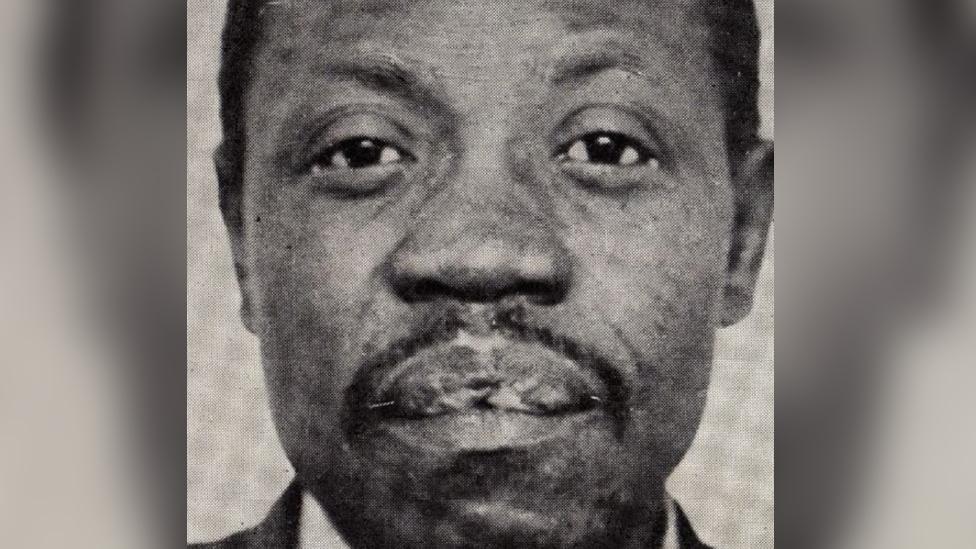Date set for David Oluwale memorial sculpture unveiling
- Published
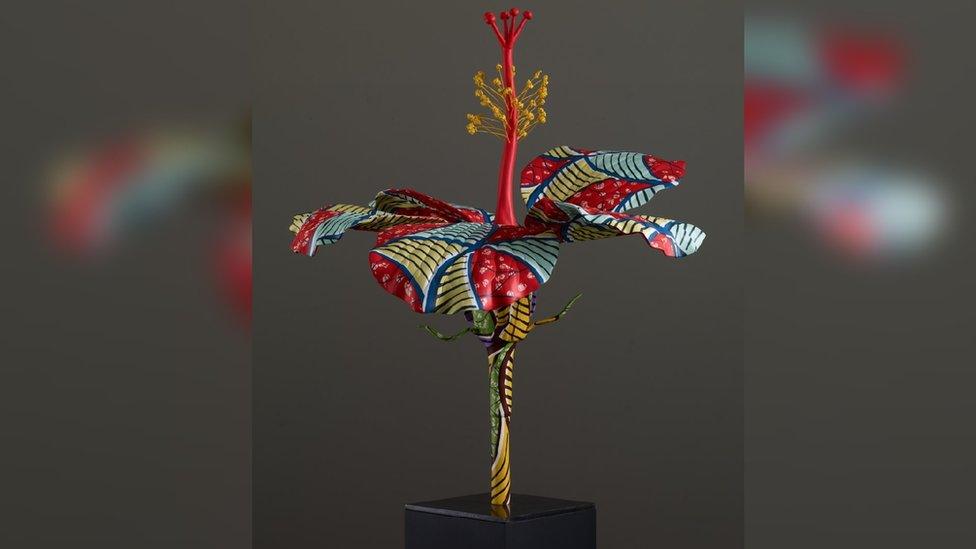
An impression of the sculpture in memory of David Oluwale
A sculpture honouring a British-Nigerian man who drowned in 1969 after being chased by police is to be unveiled in Leeds.
Previous tributes to David Oluwale, who died in the River Aire in Leeds, have been either stolen or vandalised.
Artist Yinka Shonibare's new statue would be a "platform to fight for social justice", the David Oluwale Memorial Association (DOMA) said.
They said CCTV cameras would be installed to help protect the artwork.
The 9.5m (31ft) sculpture is to be installed on Meadow Lane, near the former Tetley Brewery site.
Dr Emily Zobel Marshall, co-chair of DOMA, said she was "so excited" for the memorial, named 'Hibiscus Rising', to be unveiled on 25 November.
"It's going to be absolutely awe inspiring. It's very bold and it's beautiful," she said.
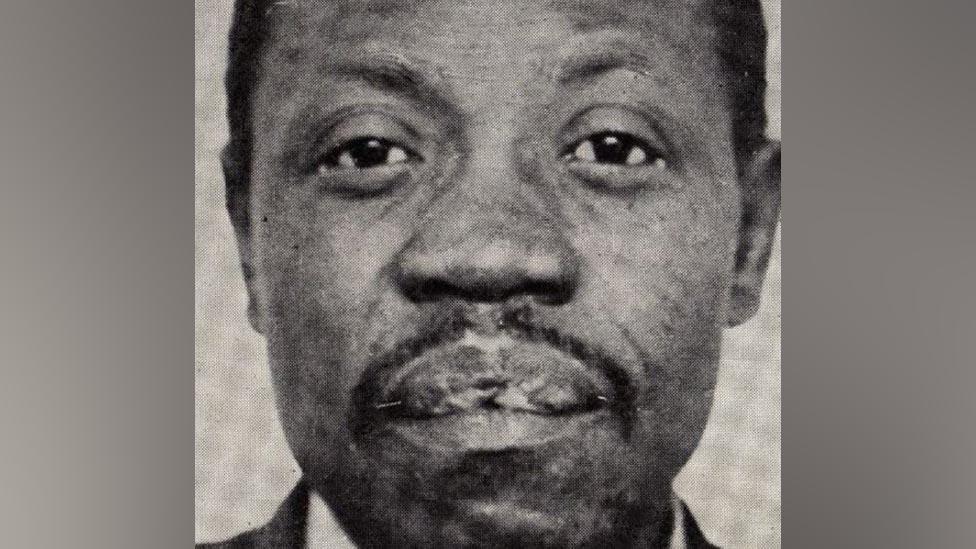
Mr Oluwale's death led to the first prosecution of British police for involvement in the death of a black person
She hoped the sculpture would inspire people to "look at the issues around racism, homelessness, and mental health that exist in our society today".
"There isn't really a bold piece of public art in our city that reflects the diversity of our people and of our cultures," said Dr Marshall.
"So finally we'll have something here which really speaks to Leeds as a place which is courageous in its decisions.
"But also that it's wanting to sort of celebrate that richness of culture, and acknowledge the horrors, the tragedies of what's happened in our city and to ensure that doesn't happen again."
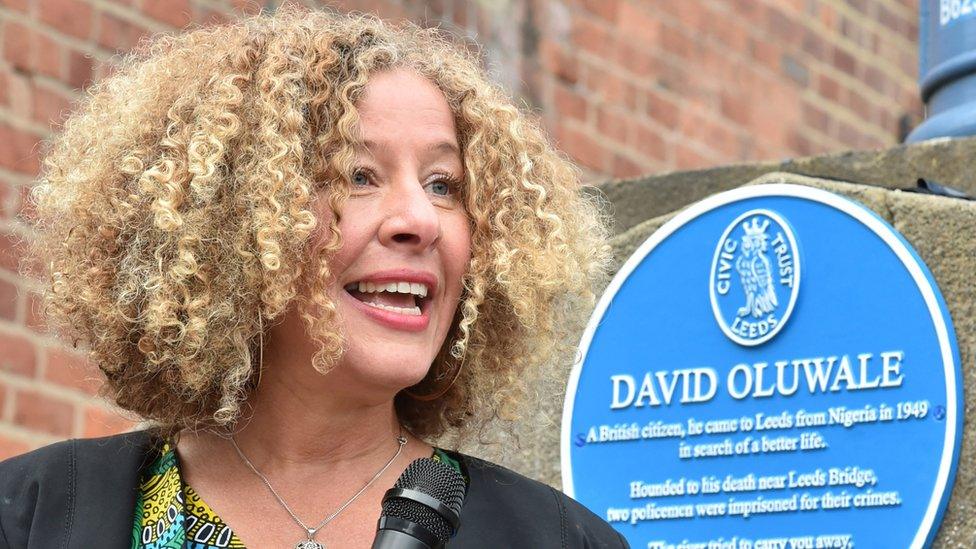
Dr Emily Zobel Marshall said she hoped the new statue would "touch people's hearts"
She said there had been an outpouring of support after the commemorative plaque on Leeds Bridge was stolen last year.
Gregory Palmer, 60, of St Peters Court, Bramley, was sentenced on Monday for damaging and destroying the blue plaque on two separate occasions.
At Leeds Magistrates' Court he was ordered to do 120 hours unpaid community work.
Palmer admitted one count of criminal damage during a court hearing in June after he tore the plaque down and threw it into the River Aire on 7 July 2022.
Two months earlier, on 20 May, he vandalised the memorial and had denied criminal damage for this incident but was found guilty following a one-day trial on Monday, when he was sentenced for both offences.
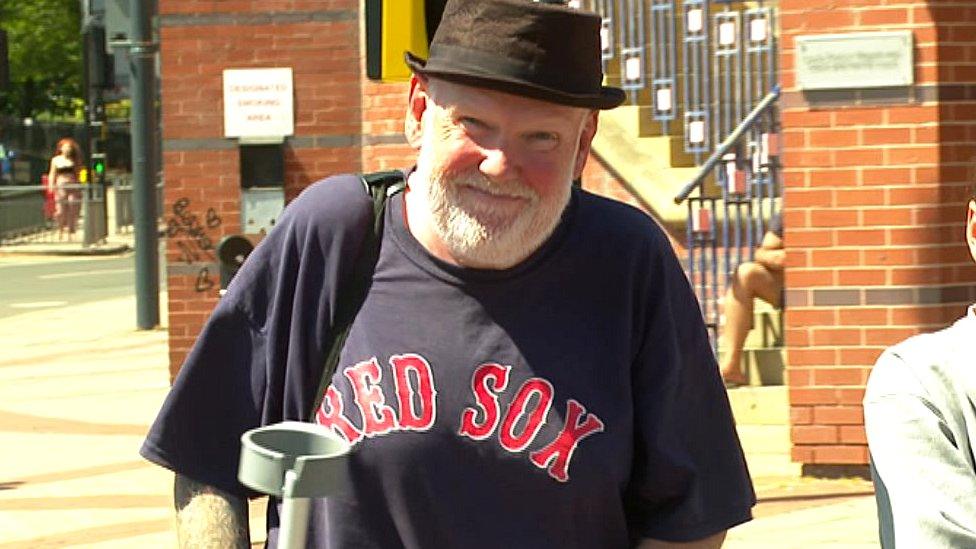
Gregory Palmer was seen on CCTV ripping the blue plaque off Leeds Bridge and throwing it into the River Aire
Dr Marshall said: "I think one of the most important ways the sculpture can remain safe and intact is to try and touch people's hearts with messages to show people this is a space of harmony and goodwill."
She said more than £15,000 had been raised through crowdfunding to pay for landscaping around the statue and a programme of arts events for the unveiling.

Who was David Oluwale?
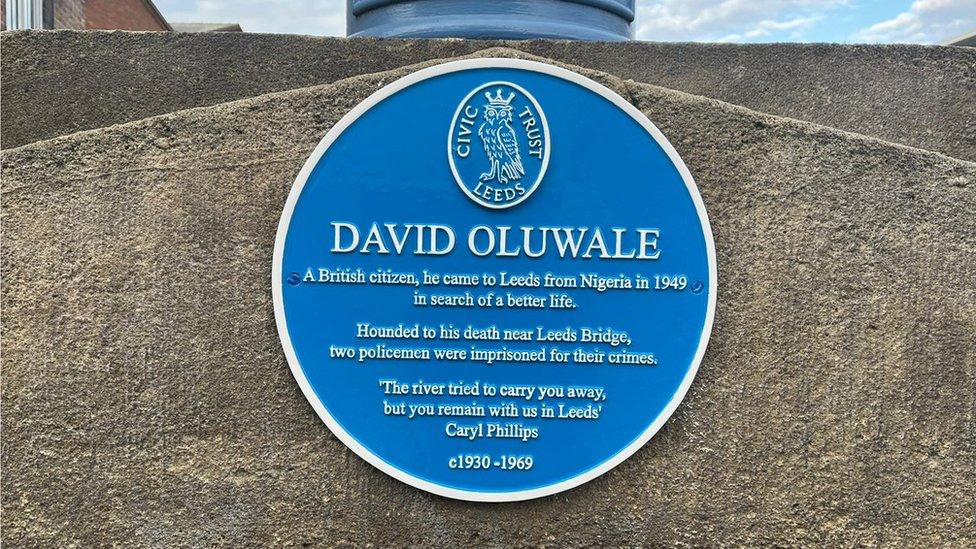
The blue plaque on Leeds Bridge has been vandalised three times since it was first unveiled in April last year
David Oluwale migrated from Nigeria to the UK in August 1949, hiding on a cargo ship destined for Hull.
He spent his final two years homeless in Leeds city centre, where he was routinely mentally and physically abused by two police officers.
In the early hours of 18 April 1969, he was chased on to a bridge over the River Aire, and his body was found in the water two weeks later.
Two officers were later jailed for a series of assaults, but justice and civil rights campaigners said their trial presented a deliberately negative portrait of Mr Oluwale as a "social nuisance".

Follow BBC Yorkshire on Facebook, external, Twitter, external and Instagram, external. Send your story ideas to yorkslincs.news@bbc.co.uk, external.
- Published14 June 2023
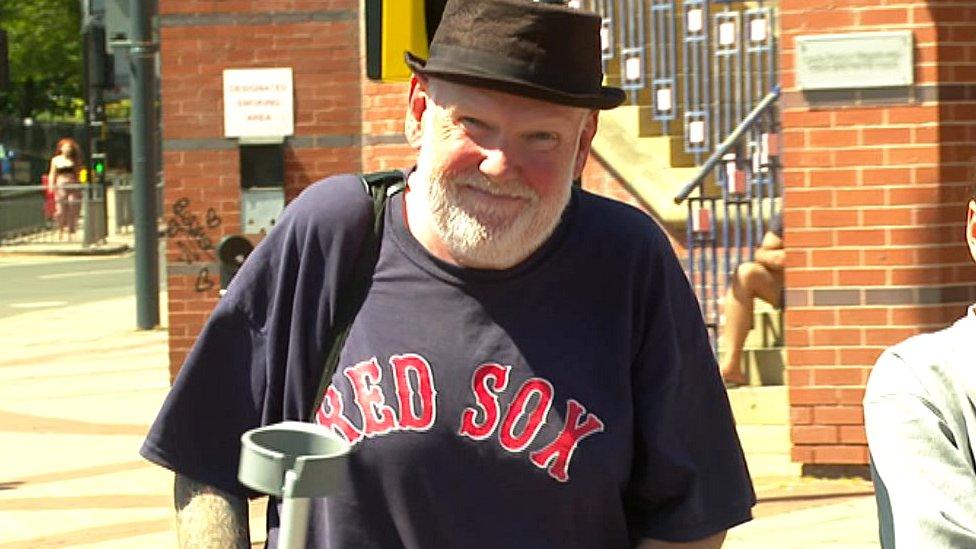
- Published13 June 2023

- Published4 September 2022
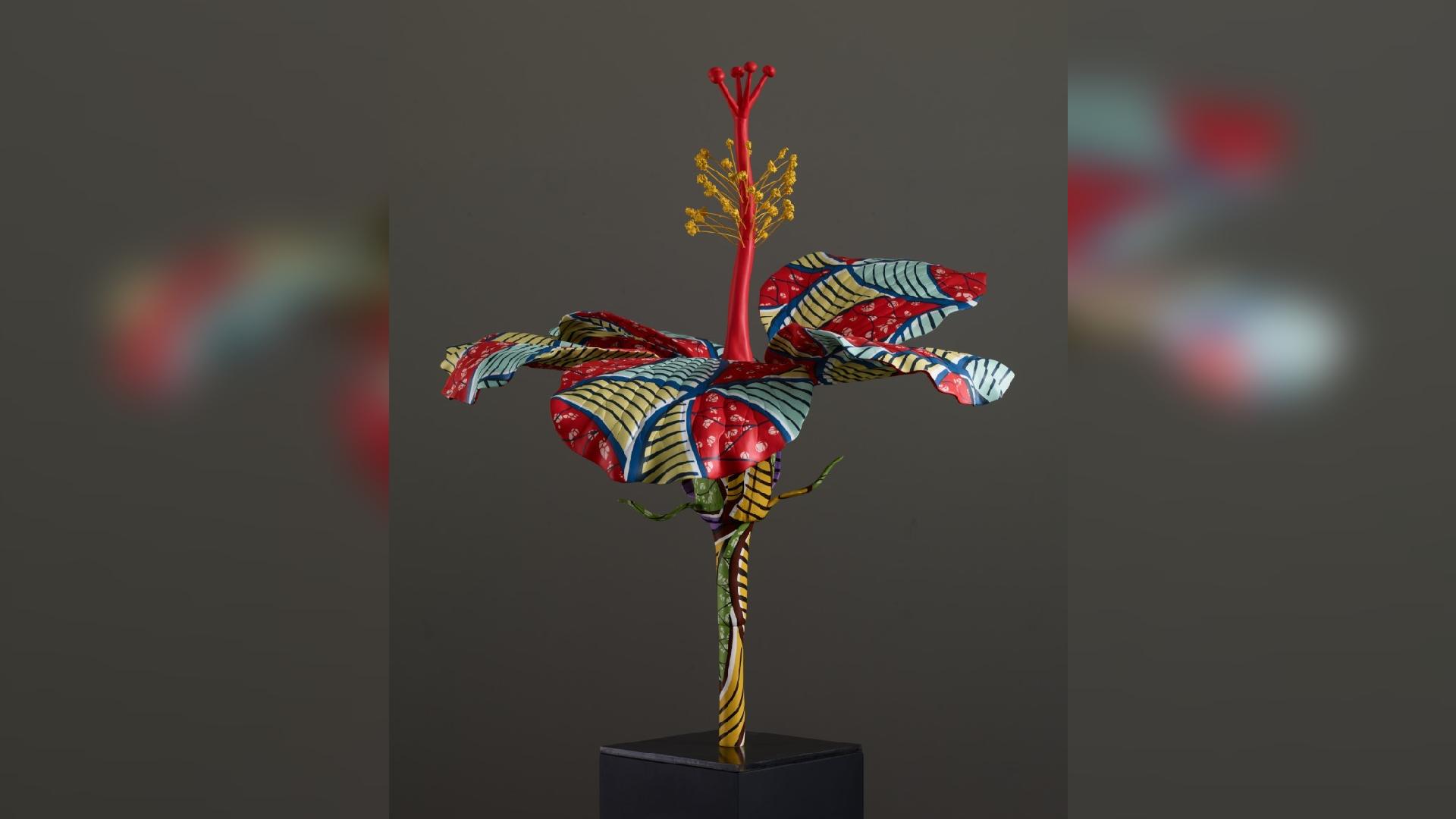
- Published28 April 2022
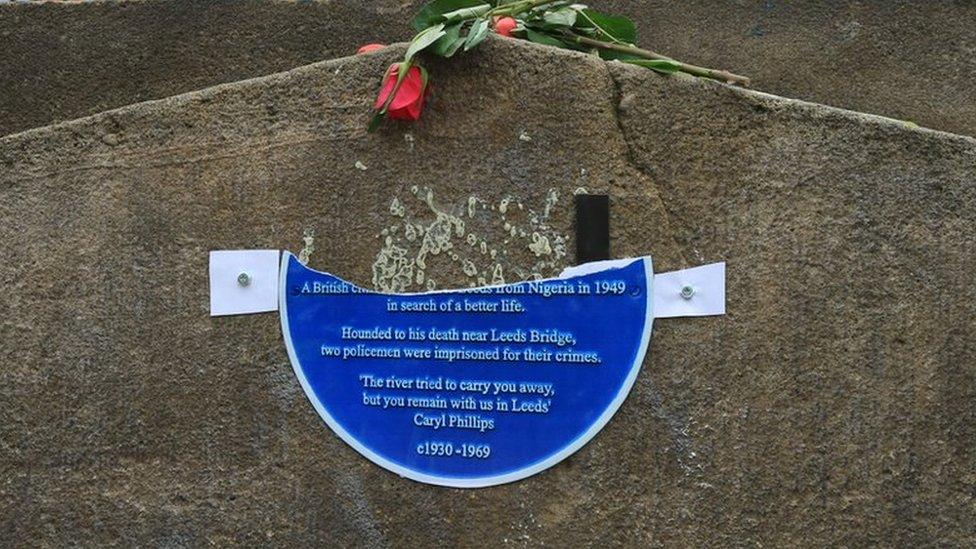
- Published27 April 2022
